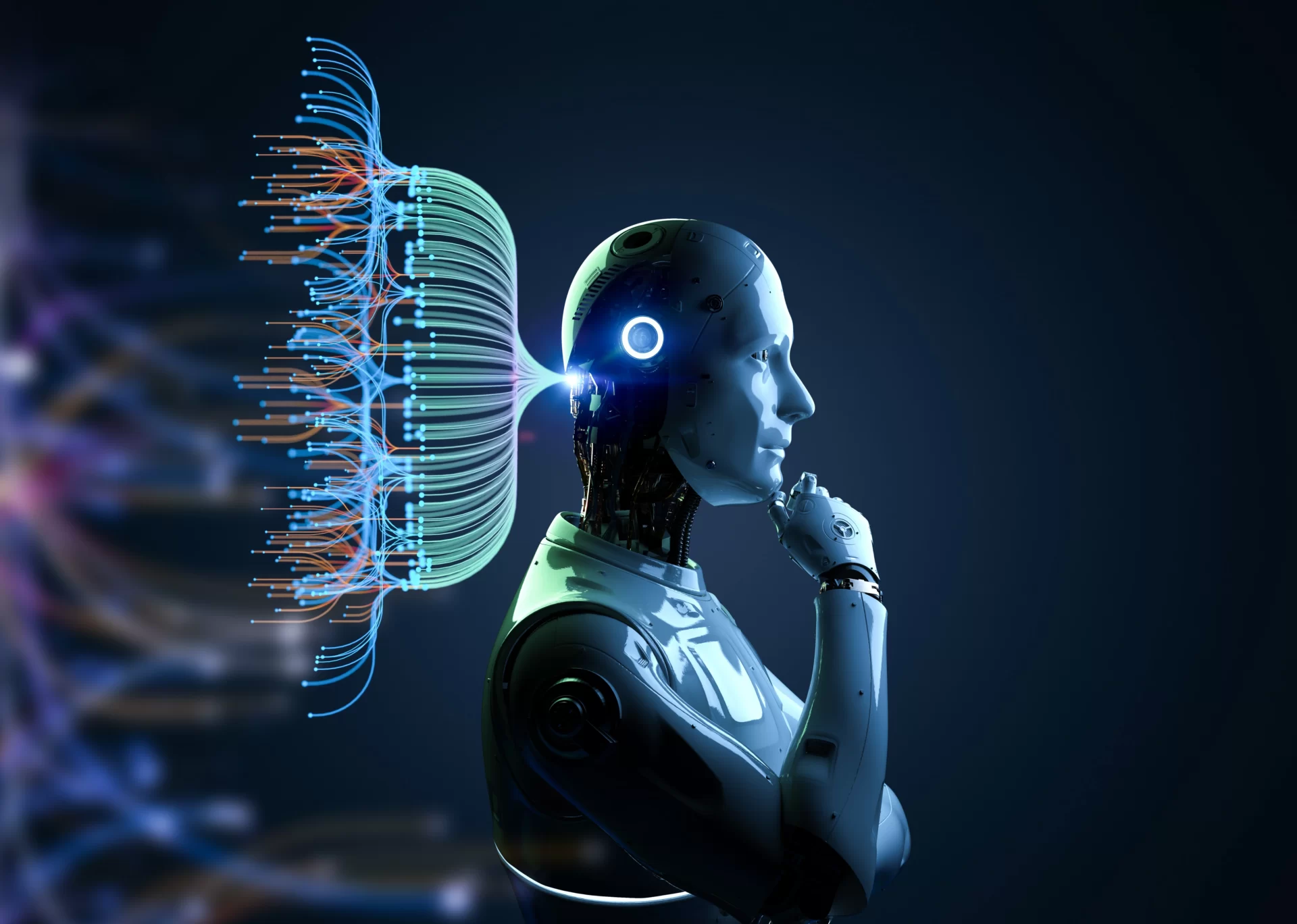In today’s rapidly evolving digital landscape, the fusion of machine learning and web development is revolutionizing the way we create and interact with online applications. By integrating machine learning services into web development projects, businesses can unlock a wealth of benefits, including improved user experience, increased efficiency, and enhanced functionality. This article explores the essential concepts of machine learning and web development, how to implement machine learning services, and the advantages and challenges associated with this innovative approach.
Key Concepts in Machine Learning and Web Development
To better understand how machine learning services can be harnessed for web development, it’s essential to grasp the key concepts in both fields.
Understanding Machine Learning
Definition and examples
Machine learning is a subset of artificial intelligence that focuses on developing algorithms and models that enable computers to learn and make decisions without explicit programming. Some everyday examples of machine learning applications include voice assistants like Siri and Alexa, email spam filters, and product recommendations on e-commerce websites like Amazon.
Types of machine learning algorithms
There are several types of machine learning algorithms, each designed to tackle different problems. The main categories include supervised learning, unsupervised learning, and reinforcement learning. Supervised learning involves training an algorithm with labeled data, while unsupervised learning deals with unlabelled data, and reinforcement learning focuses on making decisions based on feedback and rewards.
Fundamentals of Web Development
Front-end and back-end development
Web development is the process of creating and maintaining websites and web applications. It can be divided into two main areas: front-end and back-end development. Front-end development involves designing the user interface and user experience, while back-end development focuses on managing data, server-side logic, and interactions with databases.
Popular web development frameworks
There are numerous web development frameworks available to help streamline the development process, including popular choices like React, Angular, and Vue.js for front-end development, and Django, Ruby on Rails, and Express.js for back-end development.

Implementing Machine Learning Services in Web Development
Integrating machine learning services into web development projects can lead to powerful, data-driven applications with unparalleled performance and user experience.
Identifying the Right Machine Learning Service
Factors to consider
Choosing the right machine learning service for your web development project is crucial. Factors to consider include ease of integration, compatibility with your technology stack, cost, scalability, and the level of support and documentation provided by the service provider.
Top machine learning service providers
Some of the leading machine learning service providers include Amazon Web Services (AWS), Google Cloud AI Platform, Microsoft Azure AI, and IBM Watson. These providers offer a range of machine learning services, from pre-built models to custom solutions tailored to your project’s specific needs.
Integrating Machine Learning into Web Applications
Use cases and examples
There are various use cases for integrating machine learning services into web applications, such as personalizing content, predicting user behavior, analyzing sentiment, automating customer support, and optimizing marketing strategies. For instance, e-commerce websites can use machine learning algorithms to recommend products based on users’ browsing history, while news websites can leverage machine learning to provide personalized news feeds tailored to individual preferences.
Steps to successfully integrate machine learning services
To effectively integrate machine learning services into your web application, follow these steps:
- Identify the problem you want to solve and determine if machine learning is the right solution.
- Select the appropriate machine learning service that aligns with your project requirements and technology stack.
- Prepare and preprocess your data, ensuring it’s clean, structured, and suitable for machine learning algorithms.
- Train and validate your machine learning model, fine-tuning its performance and ensuring it meets your project’s objectives.
- Integrate the machine learning model into your web application, ensuring seamless communication between the front-end and back-end systems.
- Monitor and maintain your machine learning model, updating it as needed to ensure optimal performance and accuracy.
Benefits and Potential Challenges
While integrating machine learning services into web development projects offers numerous benefits, it’s essential to be aware of the potential challenges and solutions.
Advantages of Using Machine Learning Services in Web Development
Improved user experience
By incorporating machine learning services into web applications, businesses can provide personalized and relevant content, resulting in a more engaging and satisfying user experience.
Increased efficiency and functionality
Machine learning services can automate repetitive tasks and streamline processes, allowing developers to focus on more critical aspects of web development. Additionally, machine learning algorithms can uncover valuable insights and patterns in large datasets, driving better decision-making and functionality in web applications.
Potential Challenges and Solutions
Data privacy and security concerns
Integrating machine learning services into web applications can raise concerns about data privacy and security. To mitigate these risks, ensure compliance with data protection regulations such as GDPR, encrypt sensitive information, and restrict access to data based on user roles and permissions.
Balancing complexity and performance
While machine learning algorithms can add valuable functionality to web applications, they can also increase complexity and impact performance. To address this challenge, optimize your machine learning models, use appropriate algorithms, and leverage cloud-based services to scale resources as needed.
Conclusion
Embracing the power of machine learning services for web development opens up a world of possibilities for creating innovative, data-driven applications that enhance user experience and streamline processes. As technology continues to advance, the integration of machine learning and web development is expected to become increasingly prevalent, driving new trends and opportunities in the digital space. By understanding the fundamentals of machine learning and web development, selecting the right machine learning service, and addressing potential challenges, businesses can stay ahead of the curve and create cutting-edge web applications that stand out in today’s competitive market.
Frequently Asked Questions
What are some popular machine learning libraries and frameworks?
Some popular machine learning libraries and frameworks include TensorFlow, PyTorch, scikit-learn, Keras, and XGBoost. These tools provide a range of capabilities, from deep learning to more traditional machine learning techniques, to help developers create and deploy machine learning models efficiently.
How can I learn more about machine learning and web development?
There are numerous resources available to learn about machine learning and web development, such as online courses, tutorials, blogs, books, and forums. Some popular platforms for learning include Coursera, edX, Udacity, and the Daillac website, which offers comprehensive guides and resources on both topics.
Do I need a background in data science to implement machine learning services in web development?
While having a background in data science can be beneficial, it’s not a strict requirement for implementing machine learning services in web development. Many machine learning service providers offer pre-built models and user-friendly APIs, making it easier for web developers with little or no data science experience to integrate machine learning into their applications.
Can I use machine learning services for mobile app development as well?
Yes, machine learning services can be used for both web and mobile app development. Many of the same principles and techniques apply, and machine learning service providers often offer SDKs and APIs that are compatible with popular mobile development platforms like iOS and Android.
How do I ensure my machine learning model remains accurate and up-to-date?
To maintain the accuracy and relevance of your machine learning model, it’s essential to periodically retrain it with fresh data, particularly if the underlying data patterns change over time. Monitoring the performance of your model and setting up automated processes for retraining and updating can help ensure optimal performance and accuracy.
In conclusion, harnessing the power of machine learning services for web development offers the potential to create innovative, data-driven applications that provide enhanced user experiences, streamline processes, and stand out in today’s competitive digital landscape. By understanding the key concepts in machine learning and web development, selecting the right machine learning service, and addressing potential challenges, businesses can capitalize on this exciting convergence of technologies and drive future growth.

